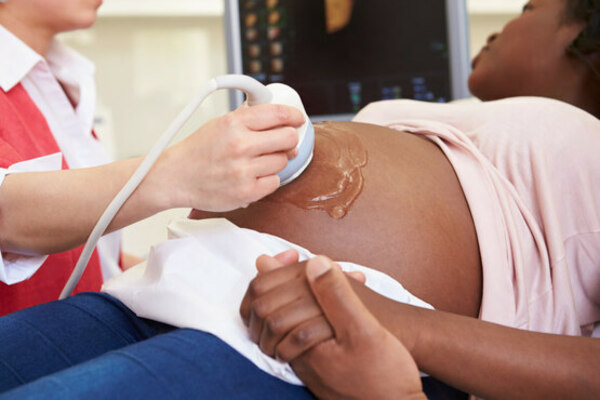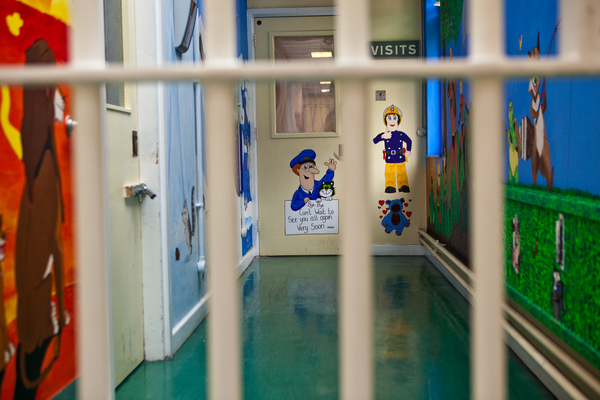The latest MBRRACE reports on maternal mortality rates and rates of stillbirths and neonatal deaths during 2016-18 show significant and growing inequalities in outcomes stemming from deprivation and disadvantage:
- Babies born in the most deprived areas are at an 80% higher risk of stillbirth and neonatal death compared to those living in the least deprived areas.
- Women living in these areas are almost three times more likely to die themselves. As the level of deprivation increases, the risk of dying in pregnancy, birth or the year after birth increases. 37% of the women who died lived in areas ranked at the very highest index of multiple deprivation, compared to 7% in the least deprived area.
- One in five (20%) of the women who died were known to social services – an increase from 12% in 2012-14. As the report states, “Involvement with social services is an indicator of the otherwise largely invisible levels of need and adversity experienced by many of the women who die”.
- These inequalities are widening. The number of women who are known to be experiencing multiple disadvantages when they die has increased by a third since the last report, from 6% to 8%.
These stark figures are rooted in the wider determinants of health including poverty, insecure and inappropriate housing, mental ill-health, domestic and sexual abuse, trauma and experiences of racism. While this data relates to deaths before the outbreak of COVID-19, it is clear that the pandemic is intensifying these issues and escalating levels of need across the country.
The tragic deaths of these women and babies are the tip of the iceberg. Behind the figures lie untold numbers of near misses and serious incidents, risking the lives and the long-term physical and mental wellbeing of women and their babies, and perpetuating cycles of trauma and disadvantage that have a lasting impact on families and wider society.
Our response
Work is underway to address the inequalities experienced by Black, Asian and other minority ethnic women and their babies; work that is greatly needed. But the other disparities outlined above, the consequences of deprivation and the social determinants of health, also require urgent attention. These inequalities have been known about for years, they are avoidable and they are unacceptable. We must act now.
Evidence shows that our health and social care systems do not know enough about the social determinants of health[1] and are ill-equipped to respond to the complexity of many women’s needs during pregnancy and the year after birth[2][3].
The number of women who die while known to social services is particularly worrying. The needs of these women are very poorly understood, and they often remain invisible to many of the services that can and should be supporting them.
The increase in maternal deaths among this group runs alongside a dramatic rise in the number of children removed into local authority care in the first year after birth. Recent research found this has more than doubled since 2007/8 and there has been a significant increase in the proportion of newborns (less than seven days old) involved in infant care proceedings. The Nuffield Family Justice Observatory’s further work in this area highlights the significant challenges involved in protecting children, protecting the rights of birth mothers and other family members and providing good care during this crucial early stage of a child’s life and beyond. These challenges have increased as a result of 10 years of austerity which, as a recent discussion paper states, have “reduced the availability of preventative services and limited the resources that can help families stay together”.
What needs to happen now
Systems, services and workforces that are already reeling from the impact of the pandemic will see more women living in complex and fragile circumstances than ever before. We need to be better prepared and equipped to respond to this challenge, or more lives will be put at risk.
This situation requires better data collection; better investment and coordination within and across systems; and better engagement with people with lived experience to eliminate these inequalities and improve outcomes for all women and babies.
National and regional NHS teams, local authority public health, child and adult social services, medical Royal Colleges, voluntary sector organisations and academics need to work together more closely and more creatively than ever before to build preventative, holistic care around women experiencing inequalities at the earliest opportunities. At the heart of these efforts there must be a recognition of the fact that women’s needs often span several complex systems, including social services, immigration, criminal justice, maternity, housing and more. We cannot look for solutions within the siloes that so often dominate commissioning and delivery.
We will be engaging with stakeholders across all relevant systems in the coming weeks and months to discuss the best ways to move forward and to offer our support and the support of our Lived Experience Team in this work.
[1] Health Equity in England: The Marmot Review 10 Years On
[2] Holding it all together, Birth Companions and Birthrights





